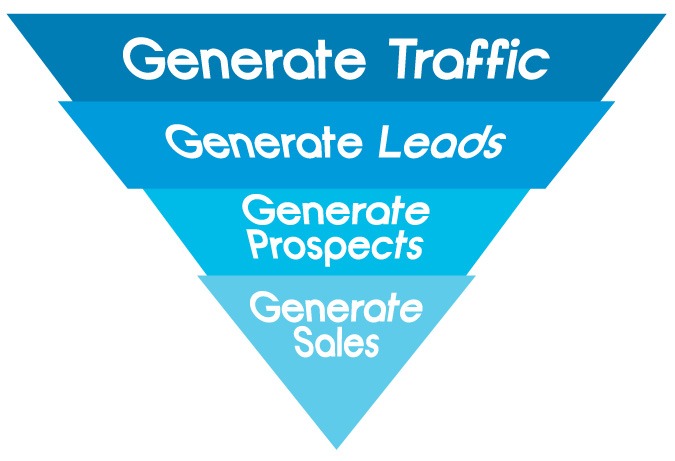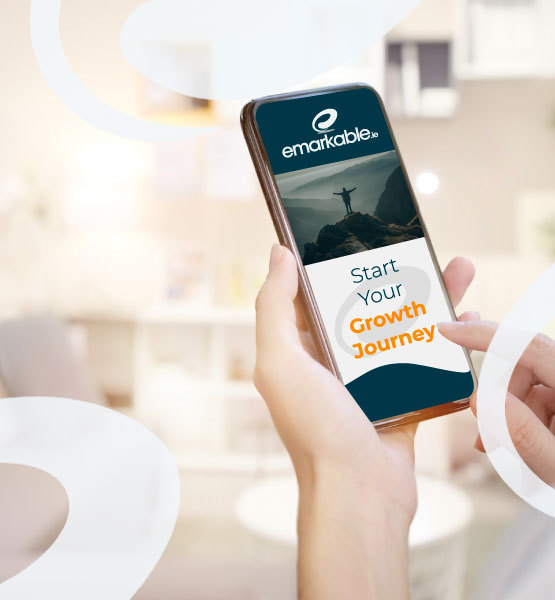2020 Digital Marketing Insights for the Medical Services Industry
According to Deloitte, “global health care spending is expected to rise at a CAGR of 5 per cent in 2019-23.” However, rising global sales does not automatically equate to an equal rise in profitability for all healthcare-focused organisations. The medical services industry in particular faces significant challenges in ensuring growth and profitability, while still delivering high-quality care to patients and enabling positive health outcomes.
The key to achieving these dual goals is digital marketing, which has proven to help build health care brands, raise awareness of service offerings, and educate patients on both the need for quality medical care and the value of medical services in prevention and early intervention. With that being said, which digital marketing methodologies and techniques offer the most traction and value for medical services firms?
In this guide, we’ll explore some of the most important digital marketing insights to inform your activities in 2020 and beyond.
- PPC Ads: While pay-per-click campaigns are nothing new, look for them to become increasingly important in 2020 and beyond. The reason for this is simple – PPC ads help position you at the top of the SERPs and ensure that you’re able to target specific keywords and phrases your patients use to find services like those you offer, faster than what is possible with organic SEO. Saying that, PPC is not a replacement for organic SEO efforts.
- Track PPC Spending: PPC ads can be invaluable aids that offer you traction while you build organic search results. However, you cannot go into this process blindly. Bidding on keywords and phrases can quickly become cost-prohibitive, and it’s essential that you track your spending and bump that against your performance. Doing otherwise could burn through your marketing budget in short order with little to show for it. Instead, take a more precise stance. Conduct A/B testing with different ad copy and keywords, determine which combination offers the right mix of success and cost-savings, and regularly refine your strategy.
- Increase Your Programmatic Display Spend: Programmatic display advertising automates the process of media buying through the use of software/artificial intelligence that target specific audiences, according to MarketingLand. As such, it can help ensure that you’re getting your message to the right people at the right time, but only if you allocate your budget correctly and if you’re able to outbid competitors.
- Local Search: The local search trend Google kicked off years ago is still going strong. As a medical service provider, it’s important that you incorporate geographic elements into your PPC and organic SEO efforts in order to ensure that you’re visible in local search results. Tactics to include here range from including your address and telephone number on relevant website pages to including town and city names in your website content to help inform Google’s bots when they index your site.
- Claim Your GMB Listing: Google is still the largest and most popular search engine on the planet, and you can bet that many prospective patients start their search on the Google homepage. By claiming your Google My Business listing, you help ensure top placement in local searches. Your GMB listing also gives you other benefits, including the ability to post informative, keyword-rich content, list contact information, and even accrue patient reviews as social proof.
- Organic Health Care SEO: Organic SEO is one of the most critical aspects of digital marketing for any medical services company, regardless of your specialty or niche. However, it is a vast collection of different strategies, ranging from on-page elements like keyword implementation and image optimisation to off-page SEO. Organic medical search engine optimisation alone requires a significant investment of time and must be handled by someone with in-depth experience and expertise, which is why many medical organisations struggle in this area.
- Voice Search: Voice search is something that all industries must contend with, not just the medical services industry. More and more people are using voice assistants like Siri or Google to conduct Internet searches from their mobile phones without having to press a single key or virtual button.
However, voice search results differ greatly from text-based results, which means that medical services providers must create content that is tailored for speech by an AI like Alexa or Siri. Content must be conversational in tone, to the point, accurate, and still include the right keywords and phrases. - Video Marketing: Video marketing can and should be used by almost every industry, but it has a powerful role to play in the medical services industry. As a medical services provider, you’re in a prime position to use video content to create marketing collateral that appeals to a wide range of Internet searchers.
You can create content that highlights procedures, side effects, injury or disease types, and a great deal more. These videos can be posted on your centre’s website, but also through social media, on sites like YouTube, and even in email marketing. You can use video to show patient recovery and success stories, to educate patients about diseases and illnesses, and much more. - Answer Questions with Videos: Chances are very good that prospective patients are asking questions online that your physicians can answer. Dermatologists can answer questions about acne care. Nutritionists can answer questions about food quality and diet. Heart specialists can answer questions about blood pressure, heart disease, and more. In addition to addressing these questions through articles and blog posts, create a video that answers them, as well. Make sure that whoever records the video answers specific questions and does so using plain, layman’s terms, rather than medical industry jargon. It’s more relatable and direct, and will help engage your audience. Dr. Mark Hyman, MD, from the US is a good example of this.
- Create Information-Rich Blog Posts and Articles: Content marketing is still king when it comes to digital marketing. It’s important that you are able to capitalise on this while simultaneously offering patients and prospective patients significant value. One way to do this is through the creation of information-rich blog posts and articles.
Take a cue from industry leaders like the Mayo Clinic and WebMD, which both offer in-depth explanations of everything from health conditions to medications, delivering valuable content that makes these websites some of the most heavily trafficked in the world, not just the medical industry. Ideally, the content you create should turn prospects into patients by illustrating why your clinic, centre, or facility is the ideal solution to their medical needs. - Go Beyond Basic Content: When you think of “content marketing”, chances are good you immediately think of blog posts and articles, as we mentioned above. However, it’s important that you take your content creation strategy well beyond the basics. Yes, creating an information-rich website is vital, but you also need to think about other unique types of digital content that help build a stronger brand for your facility, establish reputations for your medical practitioners, answer questions for patients, and more. Some examples include:
– Patient success stories
– Treatment plan explanations
– Recovery tips and guides
– Physician-side information, such as stories from doctors and caregivers - Create Infographics: A wide range of content types can provide better traction in your digital marketing efforts. Infographics are some of the highest-performing assets out there. These combine imagery with text to deliver important information while helping prospective patients digest complex information more easily. They’re ideal for illustrating many different things, from how heart disease develops to the way the body breaks down and uses glucose, and much more. Creating and sharing infographics through your website, blog, and social media, can also help you build your brand.
- Expand Your Reach through Social Media: Your clinic of centre can and should have a strong presence on social networks. Facebook is likely the best investment of your time and effort, but consider other options too depending on your specialty. For instance, a cosmetic surgery centre might find a lot of success through Instagram. Social media allows you to reach your audience and engage with them, to share valuable content, and to drive traffic where you want it, whether that’s your homepage, a landing page dedicated to a particular treatment type, or something else.
- Choose the Right Social Media Platform(s): As mentioned, different medical services firms will experience different results from each social media platform. It’s essential that you test each option to make sure that it’s worth your time and money. Again, Facebook is likely going to be a valuable tool, but what about Twitter? Is LinkedIn worth exploring? Perhaps Snapchat? Each platform offers tools that allow you to target your audience on the network. Use these to your advantage. As with PPC ads, it’s important to conduct split testing with social networks to determine what traction you may see and whether you would be better off spending your time marketing through a different combination of networks.
- Use Separate Landing Pages: Whether we’re talking about PPC ads or social media ads, you should never simply direct traffic to your website’s landing page. You must have specific landing pages that are relevant to the topic of the ad or post driving traffic in the first place. It’s also important that you use analytics tools to measure that traffic so you can see which sources offer the best traffic, but also other key metrics, including:
– How many people bounce immediately on the landing page
– How long people spending reading the (relevant) content on the landing page
– Where visitors go after the landing page - Ensure Your Site Is Mobile Friendly: If your site does not use responsive design, you’re already behind the times. Mobile Internet access outpaced desktop access back in 2016 and it has only become stronger since then. In the near future, most Internet traffic to your site will be from a smartphone or tablet, rather than a desktop PC or laptop. It’s vital that your website is able to adapt to the various screen sizes on mobile devices, helping to deliver a better overall user experience and even boosting your ranking in the SERPs, since Google rewards mobile-friendly websites.
- Multichannel Touchpoints: Today’s consumers don’t want to wait. They want results now. What’s more, they expect to be able to do this through a wide range of ways, not just through in-person office visits, via your website, or over the telephone. It is your responsibility to meet those expectations. By investing in digital technology that allows you to support multichannel touchpoints, you build a stronger brand, deliver a better patient experience, and enhance success. What channels and touchpoints, though? Just a few examples include:
– Text messaging
– Chatbots (website and social media)
– Browser push notifications
– Email
– Click-to-call through the SERPs - Invest in and Market Telehealth Solutions: In the traditional medical industry, patients must take time off work, find someone to watch the children, and then travel to your office or clinic. It’s quite an undertaking. Once there, they must wait for long periods before they’re even taken back to be seen. You can immediately make your facility stand out by investing in telehealth solutions that allow patients to be seen without ever having to visit the facility.
The benefits to your patients should be obvious – saving time, money, hassle, and stress – but telehealth services also benefit your facility. Once you take the leap and begin offering these services, market them through email, social media, your website, blogs and articles, and other digital methods. - Use Digital Surveys: Today’s consumers expect you to care about what they think about their experience with your clinic or medical facility. Digital marketing techniques actually give you the means to show that you care while also providing you with access to important information that allows you to fine-tune your facility, address problems, and deliver a better patient experience. Surveys can be delivered via email or even SMS after a patient’s visit to your location, allowing them to give immediate feedback on things like wait times, their satisfaction with the staff, their overall impression of the facility, and a great deal more.
- Make Use of Analytics: A critical component of your digital marketing strategy must be to measure your success. However, you cannot do that without the right tools. Analytics allow you to ensure that you’re getting your message in front of the right audience, at the right time, on the right platform. These tools also help you fine-tune your message, determine where things might be going wrong, and address them on the fly.
- Focus on Wellness: This tip is more about what to include in your digital marketing efforts, rather than a specific digital marketing technology, but it’s just as important. Wellness has become hugely popular in Western nations. Many companies are making headlines for their efforts in helping employees improve their wellness (BlueCross Blue Shield offered members a discount on fitness trackers, for instance). Incorporate this trend into your digital marketing efforts in as many ways as you can think of, from newsletters to social media.
- Get Patients to Bypass Google: When most people need to search the Internet, they go to Google’s homepage (or Bing’s, etc.). However, many patients no longer do this. Instead, they head straight for a trusted digital information repository specific to the medical industry. WebMD is a good example. As part of your digital marketing efforts, you can transform your website into a similarly robust resource that encourages your prospects and existing patients to bypass Google and go straight to your website.
- Factor in BERT: Google continually updates their algorithms in order to deliver better results to searchers. In late 2019, Google unleashed BERT, or the Bidirectional Encoder Representations from Transformers. This tool is designed to help make conversational search queries more understandable and thereby provide better, more accurate results. What does this mean for you? Simply put, you need to ensure that your content is tailored to searcher intent and that it is of high quality.
- Use Facebook Ads: While you should be making use of PPC platforms like Google AdWords, you should also be using social ad programs. Of those, Facebook Ads is the most powerful and the most beneficial. It also provides you with tools to help target your audience, test your ad copy, and more.
- Give Your Website an Overhaul: While the conversation about digital marketing often focuses on things like content marketing and PPC ads, you cannot neglect the single most important asset in your toolbox – your website. If it’s been some time since you last revamped it, it’s worth giving it a second look. Today, Google demands that you provide an outstanding user experience, and if you don’t, your site’s ranking will be downgraded in the SERPs. When evaluating your site, ask yourself the following questions:
– Does the site cater to user intent?
– Does the site answer users’ medical questions?
– Does the site provide high-quality information relevant to potential patients?
– Is it easy for patients to contact the facility through the site? - Consider Influencer Marketing: Influencer marketing is huge within industries as diverse as sports and fashion. However, it can also be a good option for medical services firms. Collaborate with influencers who have enough reach to help you get your message out. You can work with celebrities and social media stars, but also consider other businesses and organisations in related verticals.
- The Right CRM: Without a customer relationship management platform, you’re at a severe disadvantage. These tools allow you to do everything from patient billing to handling follow-up questions and setting appointments. However, there are many CRMs out there, and finding the right one can be quite challenging.
Bonus
Ready on to discover three more bonus tips!
- Segment Your Leads: Not all leads are the same. Some may be comparing medical providers. Others might be looking for information to help them care for a family member. Yet others may be ready to schedule an appointment for themselves. It’s important that you segment your leads so that you can personalise your marketing efforts.
- Focus on Continuous Improvement: Success in the digital world is not a once-and-done thing. You must commit to continuous improvement so that you are always on the leading-edge when it comes to compliance with Google’s best practices, government requirements, new digital marketing trends, and consumer expectations.
- Know Your Ideal Audience: Who is your ideal audience? Is it a heart patient? Is it someone interesting in losing weight or improving their physical appearance? The medical services industry is vast, and it’s vital that you’re able to direct your marketing efforts at those who are actively searching for what you have to offer, rather than casting too wide a net. Define your audience, and then take things deeper by creating personas that represent different segments so you can further personalise your efforts to drive better engagement.
Work with a specialist
Ultimately, the medical services industry can benefit greatly from digital marketing tools and techniques. However, identifying the most effective tools can be immensely challenging. Creating content that resonates with your audience while complying with industry best practices can also be difficult and time consuming.
There is also the fact that every minute you spend focusing on digital marketing is one less you have to spend operating and maintaining your clinic or other health care facility, or caring for your patients. It’s a great deal to handle. If you find that you need a little assistance, contact Emarkable. Call us on 01 808 1301 to schedule a consultation with one of our experts and to learn more about how our services can help you better serve your patients.





